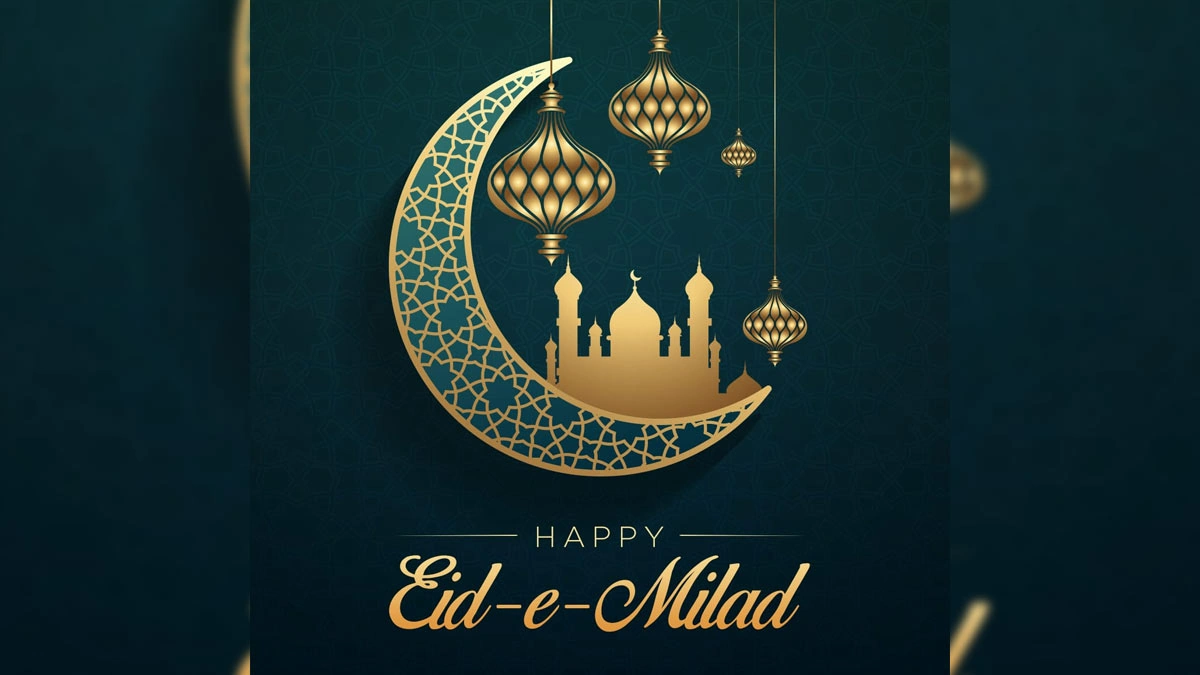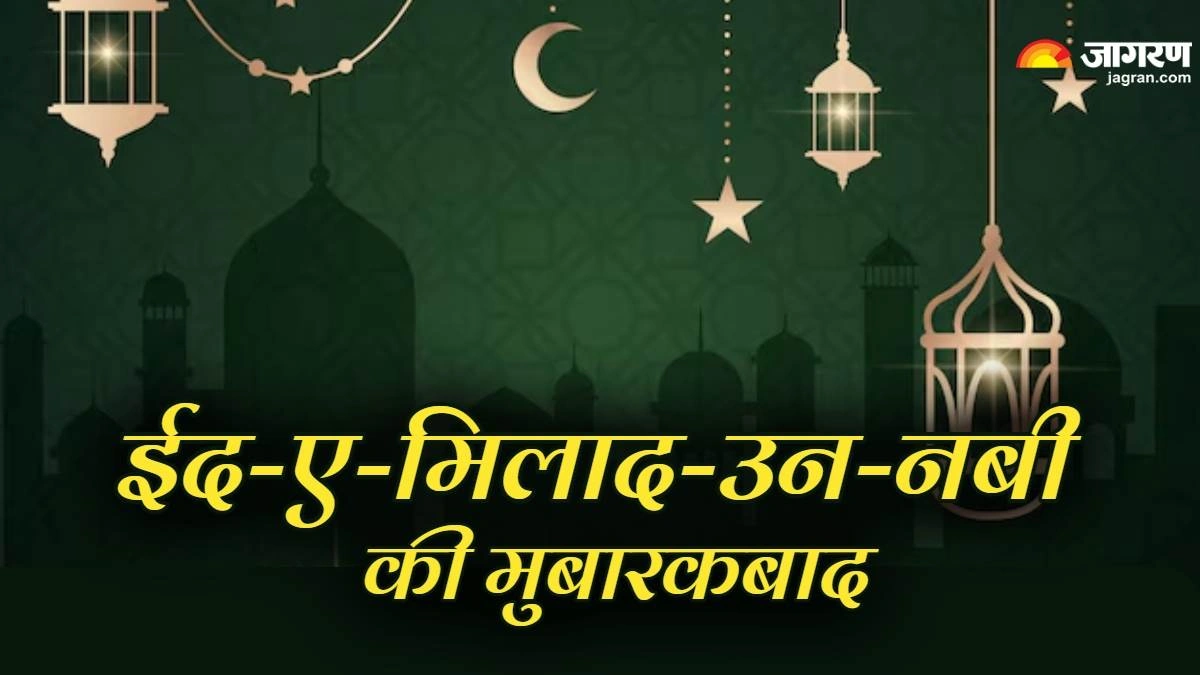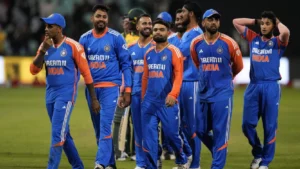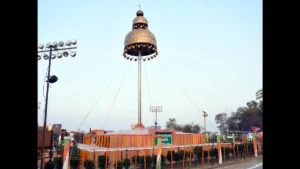Eid-e-Milad | More Than Just a Holiday – It’s a Lesson in Compassion
Eid-e-Milad, or Mawlid, isn’t just another date on the Islamic calendar. It’s a celebration of the Prophet Muhammad’s (peace be upon him) birth, yes, but it’s also so much more than that. Let’s be honest – in India, we’re used to holidays. But this one? This one offers a profound lesson in compassion, empathy, and community. It’s a chance to reflect on the Prophet’s teachings and apply them to our lives, making us better individuals and a stronger society. Let’s explore why this celebration matters, especially in today’s world.
The Historical Significance | A Light in Darkness

To understand the importance of Eid-e-Milad, we need to step back in time. Pre-Islamic Arabia wasn’t exactly a picnic. Tribal warfare, social injustice, and a general lack of morality were rampant. Then came the Prophet Muhammad (PBUH), bringing with him a message of peace, equality, and justice. His teachings transformed society, emphasizing the importance of helping the poor, respecting women, and resolving conflicts peacefully. It’s this transformative impact that we celebrate on Eid-e-Milad. Think of it as a reminder of the potential for good that exists within each of us. Celebrations often include special prayers, lectures on the Prophet’s life, and distribution of food to the needy. This isn’t just about rituals; it’s about internalizing the values he championed. The observance of Eid-e-Milad provides an opportunity for spiritual reflection and renewal.
Beyond the Sweets | Embracing the Prophet’s Teachings
Okay, let’s be real – the sweets and delicious food are definitely a highlight of any celebration. But reducing Eid-e-Milad to just that would be a massive disservice. The essence of this day lies in remembering and internalizing the Prophet’s (PBUH) teachings. What does that mean in practice? It means striving to be more compassionate, more forgiving, and more helpful to those in need. It’s about fighting injustice wherever we see it and promoting peace and understanding in our communities. And, yes, it’s about being kind to animals too! Think of this day as a reset button – a chance to realign our actions with our values and make a conscious effort to be better human beings. According to Islamic scholars, the Prophet’s birthday is a time for increased devotion and charitable acts.
But, and this is important, it’s also about understanding the context. The Prophet’s teachings weren’t just abstract ideals; they were practical solutions to the problems of his time. And many of those problems – inequality, conflict, and social injustice – still exist today. So, celebrating Eid-e-Milad isn’t just about looking back; it’s about looking forward and using the Prophet’s (PBUH) example to build a better future.
How to Truly Celebrate Eid-e-Milad | A Practical Guide
So, how do you actually do Eid-e-Milad justice? It’s not just about attending religious gatherings (although those are great too!). Here’s a little guide I’ve compiled over the years. It’s about actively embodying the Prophet’s (PBUH) qualities in your daily life.
- Spend time in reflection: Take a moment to contemplate the Prophet’s life and teachings. Read about his experiences, his struggles, and his triumphs. Think about how you can apply his example to your own life. What fascinates me is how relevant his teachings still are, centuries later. We should also understand the importance of Mawlid celebrations in fostering community spirit.
- Engage in acts of charity: The Prophet (PBUH) was a huge advocate for helping the poor and needy. Donate to a charity, volunteer your time, or simply offer a helping hand to someone in need. Even a small act of kindness can make a big difference. The concept of charity in Islam emphasizes the importance of sharing resources with the less fortunate.
- Promote peace and understanding: The Prophet (PBUH) was a peacemaker. Strive to resolve conflicts peacefully, promote understanding between different communities, and challenge prejudice and discrimination wherever you see it. And as India is the country of various religions, understanding between different communities can enhance peace.
- Strengthen family ties: The Prophet (PBUH) placed a high value on family relationships. Spend time with your loved ones, show them your appreciation, and work to strengthen the bonds of kinship. This day is an opportunity to promote good relations among neighbors and relatives.
Eid-e-Milad in the Indian Context | A Tapestry of Traditions
What’s truly beautiful is how Eid-e-Milad is celebrated across India. From the bustling streets of Mumbai to the serene valleys of Kashmir, each region adds its unique flavor to the festivities. In some places, you’ll find grand processions with beautifully decorated floats and devotional music. In others, you’ll witness heartwarming community meals where people from all walks of life come together to share food and celebrate. And in still others, you’ll see elaborate displays of lights and decorations, transforming entire neighborhoods into dazzling spectacles. It’s a testament to the diversity and richness of Indian culture and the unifying power of faith. It also promotes communal harmony. Check this out for more information on Milad-ul-Nabi celebrations .
But here’s the thing: it’s not just about the outward displays of celebration. It’s about the underlying spirit of unity, compassion, and shared humanity that binds us together as Indians. It’s a reminder that despite our differences, we are all part of the same fabric and that we have a responsibility to care for one another. It showcases the importance of Islamic festivals in India in bringing people together.
The Enduring Relevance of Eid-e-Milad
In a world often dominated by negativity and division, Eid-e-Milad serves as a powerful reminder of the values that truly matter: compassion, empathy, and community. It’s a chance to step back from the chaos of daily life and reflect on the teachings of a man who transformed the world with his message of love and peace. It’s an opportunity to renew our commitment to building a better future for ourselves, our communities, and the world. The message of Prophet Muhammad’s teachings remains relevant for addressing contemporary challenges. Let me rephrase that for clarity: This day isn’t just about remembering the past; it’s about shaping the future.
The key message isn’t just about religious observance; it’s about understanding the underlying principles of Islam and applying them to our lives. It’s about being a better neighbor, a better citizen, and a better human being. It’s a chance to reflect on our values and strive to embody the qualities of compassion, justice, and peace in our daily lives. So, as you celebrate Eid-e-Milad, take a moment to remember the true essence of the day and let it inspire you to make a positive difference in the world. It truly makes the world a better place to live in.
FAQ Section
Frequently Asked Questions about Eid-e-Milad
What exactly is Eid-e-Milad?
Eid-e-Milad (also known as Mawlid) is the celebration of the birth of Prophet Muhammad (peace be upon him). It’s a time for Muslims to reflect on his teachings and celebrate his life.
How is Eid-e-Milad celebrated in India?
Celebrations vary by region but often include processions, special prayers, lectures, and distributing food to the needy. Some communities also decorate mosques and homes .
Is Eid-e-Milad a public holiday in India?
Yes, Eid-e-Milad is typically a public holiday in India, though the specific date may vary based on lunar sightings. The significance of observing Islamic holidays lies in commemorating important events in Islamic history.
What are some common traditions associated with Eid-e-Milad?
Common traditions include attending religious gatherings, reciting poetry in praise of the Prophet (PBUH), and engaging in charitable activities. It is a time for community gatherings and sharing meals.
Why is it important to celebrate Eid-e-Milad?
It’s important because it reminds us of the Prophet’s (PBUH) teachings and his impact on society. It encourages us to strive for compassion, peace, and justice in our own lives.
Are there any specific foods associated with Eid-e-Milad?
While specific foods vary by region, sweets and special dishes are commonly prepared and shared with family, friends, and the poor. The distribution of food symbolizes generosity and sharing.













